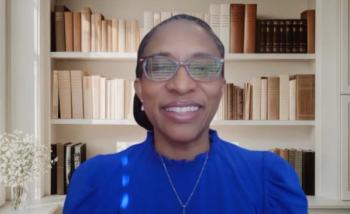
The Twists and Turns of Taking Medicaid Expansion to the Voters
The American Rescue Plan Act, which President Joe Biden signed into law last month, calls for federal government to pitch in an extra 5% of costs for new expansion states.
A nonprofit created by the Mississippi Hospital Association and other advocacy groups has filed paperwork with the hope that voters in this poor state will do what the legislature has not: expand Medicaid and bring healthcare to an estimated 200,000 working-class, low-income residents.
Mississippi is among the 12 states that has not expanded Medicaid, and the hospital group is among those hoping to leverage the $1 billion a year in federal funds that the Biden administration is offering to get more people covered, having sweetened the pot to get holdout states on board.
The American Rescue Plan Act, which President Joe Biden signed into law last month, calls for federal government to pitch in an extra 5% of costs for new expansion states.
“Hospitals and our working poor across the state of Mississippi cannot keep waiting,” MHA President Tim Moore told the news outlet
Ballot measures have been the
In Mississippi and elsewhere, hospital groups are front and center in efforts to expand Medicaid. Failure to adopt expansion is both hard on poor patients and precarious for hospital finances due to the way federal funding flows to hospitals since the passage of the Affordable Care Act. The law envisioned direct aid being replaced by payments from coverage for individual patients, who would seek preventive care instead of showing up in the emergency room.
But when states went to court and won the right to avoid expansion, hospital finances in many poor states were turned upside down, and many rural areas have lost hospitals.
In Missouri, where voters approved a constitutional amendment to adopt expansion, the legislature
In Missouri, single adults cannot receive Medicaid coverage at all, and parents cannot make more than 21% of the federal poverty level, or $5,400 in 2021 for a family of three. But an amendment approved last year was scheduled to take effect and extend healthcare to single adults who made less than $17,770.
That didn’t sit well with Rep. Cody Smith, the Republican chair of the House budget committee, who set money for Medicaid expansion aside into a separate bill, calling Medicaid expansion “wrong for Missouri,” despite the new commitments for the federal government to cover 90% of costs for those covered under expansion.
Smith said, “the federal government has no money — there is only taxpayer dollars. They are federal-deficit-spending at a rate that is unprecedented at this point.”
Another Republican, Rep. Justin Hill said, “Even though my constituents voted for this lie, I am going to protect them from this lie.”
Should the legislature fail to fund expansion in the face of a voter-approved constitutional amendment, court challenges are a certainty, Missouri’s Republican Gov. Mike Parson has said. He included expansion in his proposed budget.
Meanwhile, Mississippi Gov. Tate Reeves remains steadfastly opposed to expansion. Last week, the state legislature could not even






























